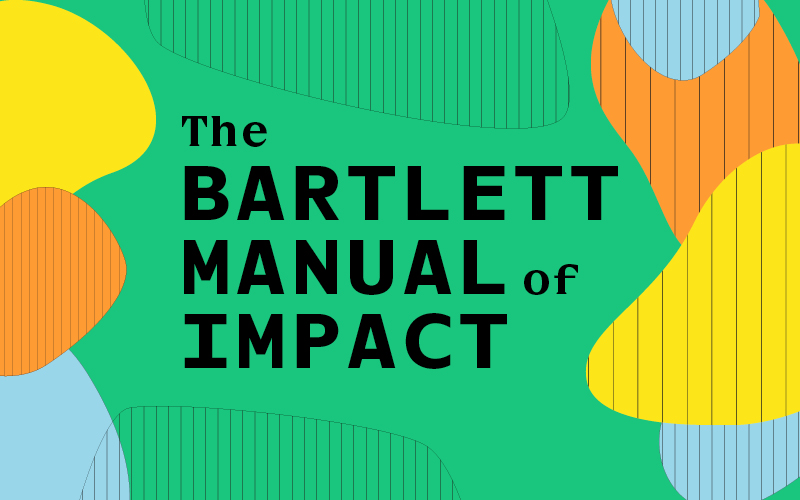
The Bartlett Faculty of the Built Environment, based at University College London, is by many measures a place of ‘excellence’. We have a variety of experts working across a huge range of disciplines (from architecture to planning, environment, energy and resources, project management, economics and beyond) sharing their insights with the world and proactively creating broader impacts around the world. We can tell a convincing story about our collective impact as global in its reach and deep in its significance, and we are able to make these arguments in the UK’s Research Excellence Framework.
This story of excellence, though, is very narrow and simplistic and crucially does not provide any insight into how we are trying to create impact outside of academia. We felt that there was a big gap between our impacts and the true, complex and messy stories that underpin them.
The Bartlett Manual of Impact aims to support individuals, groups, and departments to develop a mindset for creating meaningful impacts. It does this by providing case studies and challenges that are focused on how thoughtful partnerships can be created. This is not a publication that just celebrates the outcomes of our work, but instead focuses on the challenges and opportunities that emerge from working in partnership.
The Manual focuses on three themes of Trust and Care, Power and Equity, and Reflection and Learning. Some of the challenges we pose in the Manual include:
- How do you create impact when you cannot predict the future?
- How do you understand and share your values?
- How can impact activity avoid perpetuating inequalities?
- How can you scale and grow your impact work?
We have chosen the term ‘manual’ to convey the idea of guidance, stories, and practical tips to promote effective practices. However, we recognize that ‘making impact’ is a dynamic and iterative process, often not a straightforward or planned endeavour.
We hope that the Manual will provide inspiration for colleagues across the sector and to our partners who are essential to our mission in knowledge mobilisation. Should you have any questions or ideas relating to the manual, please contact Tadhg Caffrey at t.caffrey@ucl.ac.uk.